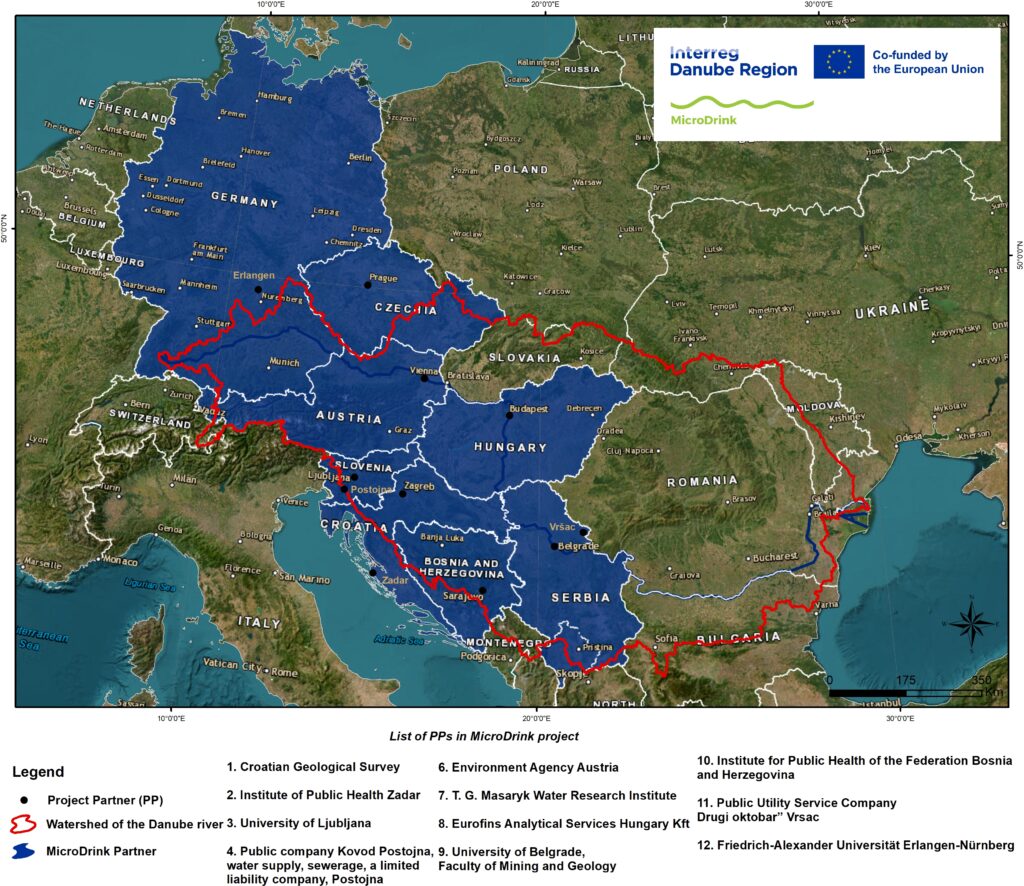
Project background
Microplastics (MP) are becoming pollutant of concern, as each year 75000–300000 t are released in Europe’s environment. According to Joint Danube Survey 4 (JDS4) conducted in 2019, which established a baseline of MP occurrence in the Danube River Basin (DRB), MP was found along the whole Danube, its major tributaries and in aquatic organisms, with polyethylene being the most abundant component usually used in plastic bottles and packaging.
Continuous and global emission of MP in DRB contributes to permanent pollution of ecosystems and consequently food chains. Exposure of living organisms leads to (eco)toxic impairments. In contrast to well researched seawater, occurrence and detrimental effects of MP in surface water and groundwater especially those used for drinking water supply of DRB region remain largely unexplored.

Project aims
MicroDrink aims to make Danube region more resilient to MP pollution by closing the knowledge gaps regarding MP through open online MicroDrink knowledge base offering comprehensive review of MP sampling methods, laboratory instruments and analytical techniques, establishing and maintain synergies with past and current EU projects dealing with DRB water management and protection, engaging relevant national and transnational stakeholders via targeted meetings, workshops and events. MicroDrink’s innovative approach is implementation of MP approach harmonized at EU and non-EU level, tested in designated transboundary pilot sites where MP will be monitored in 9 pilot actions equally distributed in 3 clusters (karst, intergranular, surface/river bank filtration) representative of the vast majority of DRB drinking water resource types.
Project methodology
The project outputs and results will build sound foundation for future activities in DRB aimed at assessing MP related risks, hazards and impacts on environment and human health. MicroDrink transboundary and cross-sector collaboration in EU and non-EU countries will foster active engagement of all key actors across DRB, preparing them for efficient implementation or adaptation of EU DWD, increasing the resilience of water supply systems against MP by providing the water supplier with a decision-making support tool for selecting optimal measures and choosing adequate actions towards mitigation of MP. Water supply is currently endangered with climate changes, and hydraulic models forecast decreased water quantities that subsequently lead to increased MP concentrations in drinking water. Thus, MicroDrink will aim to improve quality of drinking water in DRB. We also aim to raise the awareness and influence the behaviour of water supply end users by introducing them to good practices for prevention of MP pollution via municipal waste.

